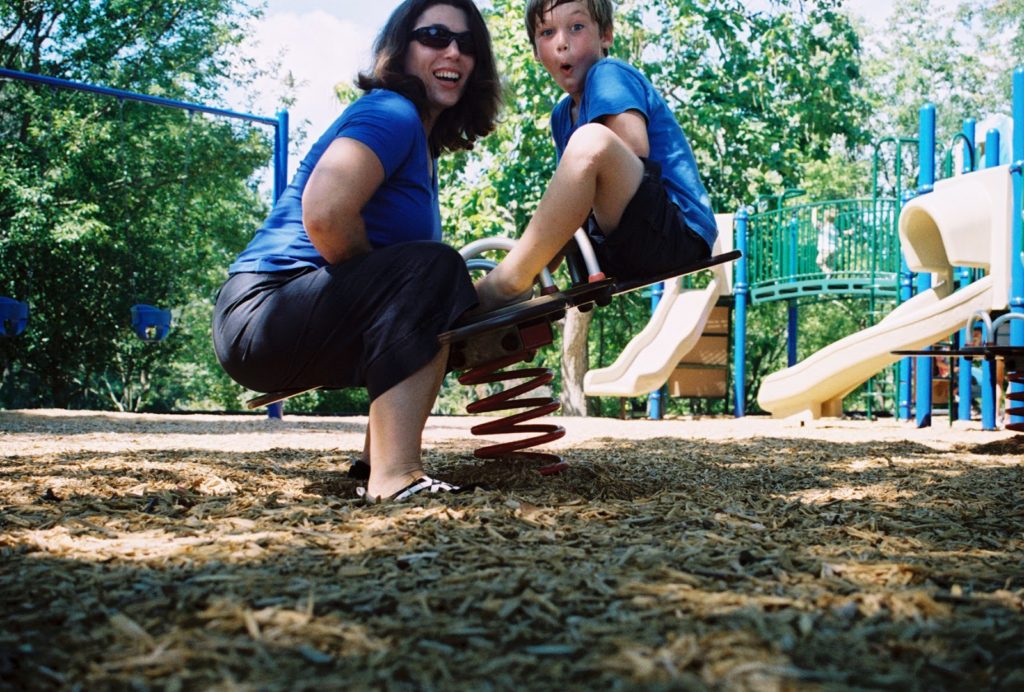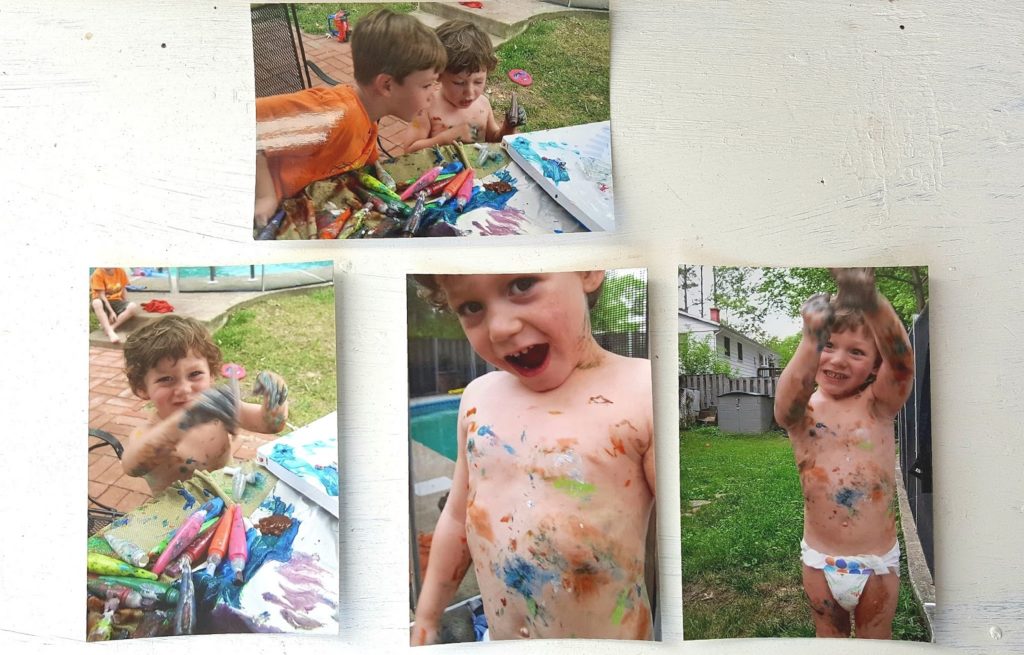Play is often talked about as if it were relief from serious learning. But for children play is serious learning. Play is really the work of childhood.
Fred Rogers
Next to love, I believe that play is the most important part of childhood. And it’s good for adults too! As a parent, teacher, and family photographer, play is at the heart of what I do and want to inspire.
Play is at the heart of our childhood memories.
I remember that wonderful feeling of being immersed in my own imaginative world, free to play for hours, build couch forts, sail sticks down streams, make up games with my brother and friends, pore over books, or just sit and think.

Rediscovering play has been one of the best parts of being a parent. My children and I have played countless made up games together–the silly worm (he kept falling off the couch), blue whale in the bathtub (he kept getting wet and getting upset about it), rescuing people in our “fire engine” (our car).
They’ve done all the things I remember from my childhood, from dressing up as superheroes, to transforming a cardboard box into a spaceship, to building elaborate raceways, block towers and fantastic memories along the way.

What is play?
Play is freely chosen, self-motivated, and experimental. It takes place in an environment where there are no restrictions on how to act, think, or do, and where exploration, discovery, and practice are possible without fear of consequences. Most of all, play is fun. And fun is learning.

The importance of learning through play is well established in scientific literature. The bottom line is that play is the foundation of social, emotional and cognitive development, and has a profound and direct effect on children’s confidence, EQ and IQ.
In real life, however, actual play can be elusive. The goal of play is fun, and that doesn’t always fit with grown-up, results-oriented, time-strapped agendas. The benefits of play are often invisible in the moment: the neurological development that is happening internally, won’t necessarily be expressed externally until much later. And despite the research, many classes and childhood environments are not truly play-based.

As parents and teachers, we need to trust the process and make time and space for play.
One of my big takeaways from my first year as a parent in Music Together (a class I would later teach), was recognizing the moments when my son had a wide-eyed, slack-jawed expression and was doing “nothing” in class, but when neurologically he was doing everything. He was absorbing: processing the music and environment around him, and his brain was busy creating the structures that he’d need to keep a beat, play an instrument, do math, socialize and master language, to name just a few skills.
Of course, I already knew about child development. I knew that children needed that freedom to explore and experience the world at their own pace, and I had no trouble supporting my children in this at home. In fact, I chose Music Together class for my family because of the play-based, informal learning environment.
But in class, I still had to tell my adult brain that it was ok to just let him be (and that this class was a safe space to do this), and later, as a toddler, to let him quietly stack shakers by the window instead of doing what the adults were modeling in the circle.
I trusted the process, and then one day, when we went home, he recreated and led the entire class for me and a few stuffed animals. To the casual observer, in class, he would have looked like he wasn’t paying attention or participating, but it was clear that he knew every song, every movement we’d done, by heart.
For a child, “play begins in delight and ends in wisdom.”
Music Together Parent Guide
Today, my children are teens, and I see the effects of play on their lives. I see it in the way they are self-motivated problem-solvers and creative thinkers who love to learn, improvise and design projects, just for fun.
As a parent, photographer, and teacher, I recognize and celebrate those moments of quiet absorption, genuine connection, delighted discovery and authentic happiness during play. And I love to catch playful moments in documentary family photography sessions. For me, play is what childhood is all about.

What does play look like in your family?
What do you remember about playing as a child?
What are your favorite ways to play with your children?
Tell me about it below…
Dec 14, 2021

comments